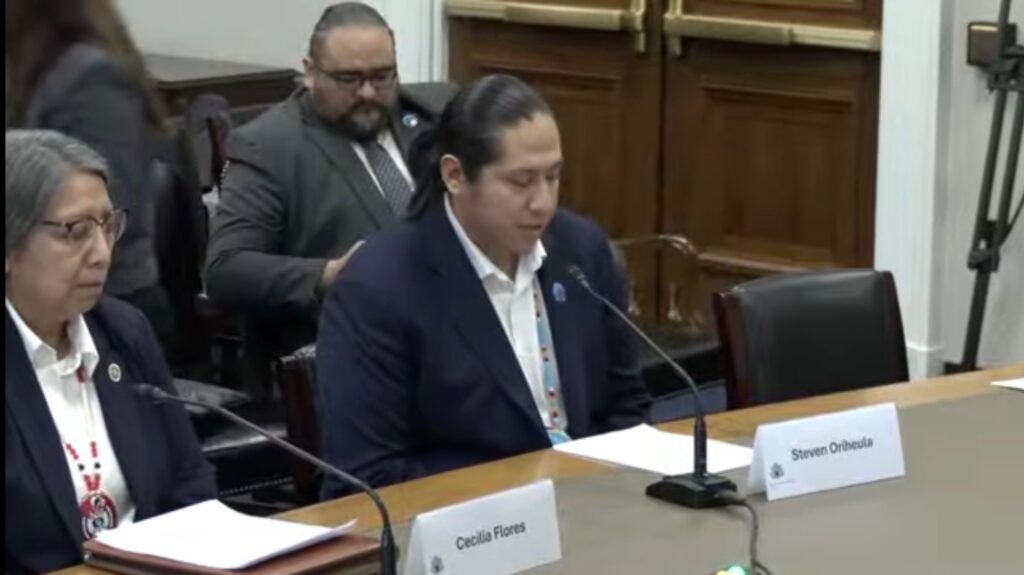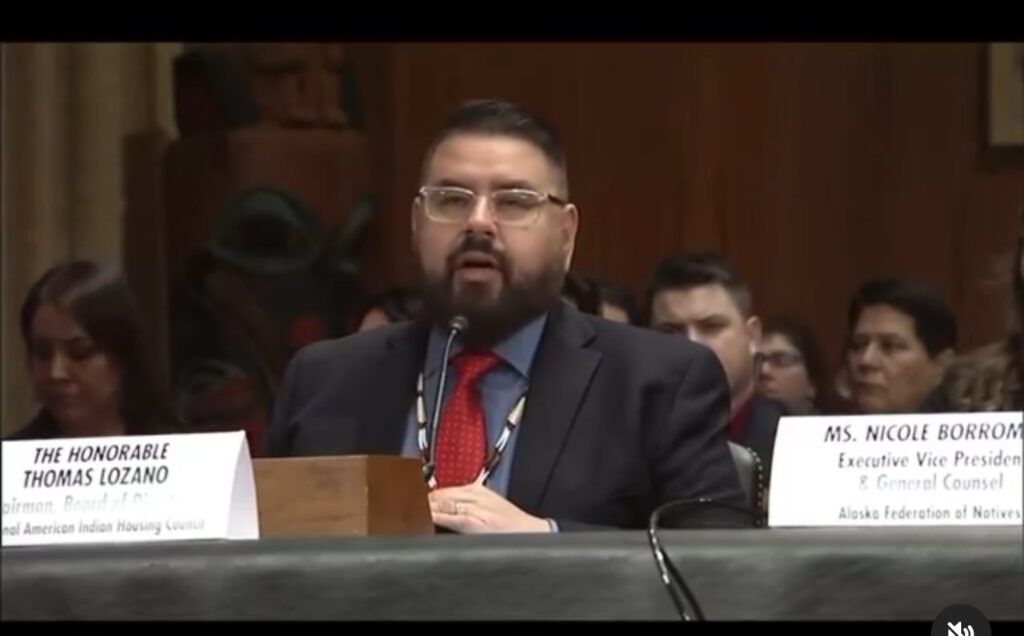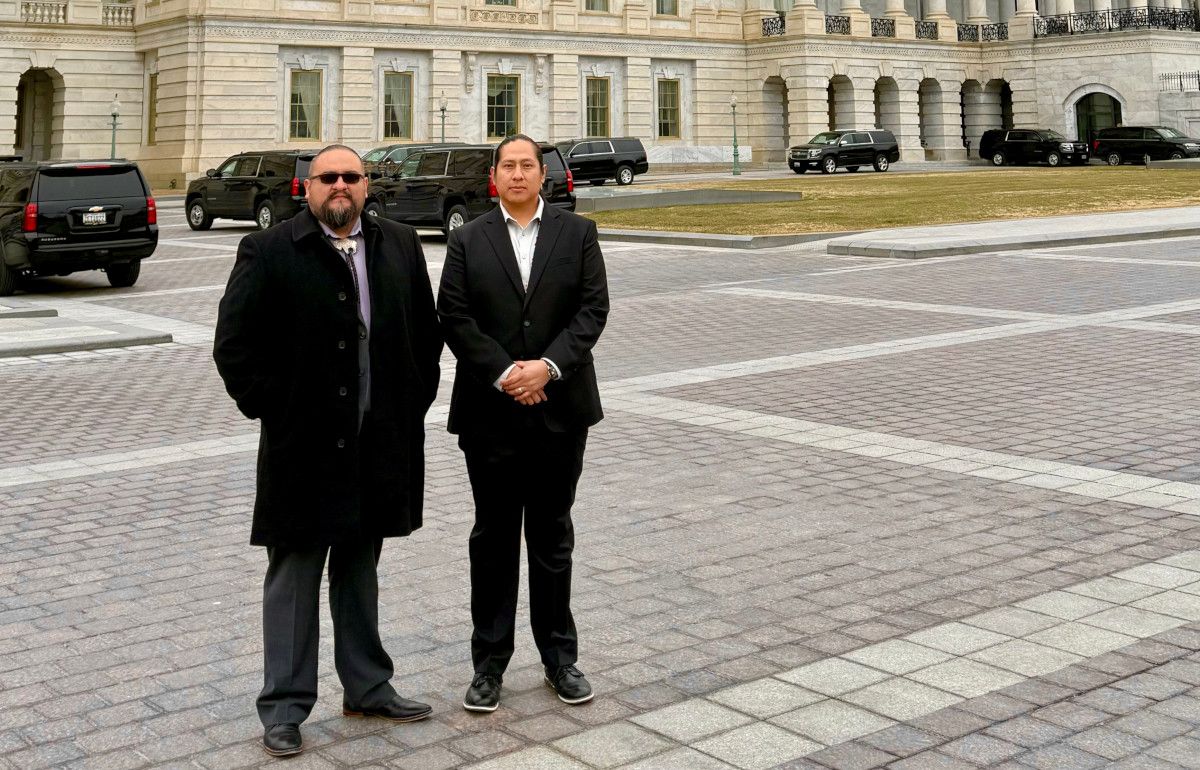WASHINGTON D.C. (February 28, 2025) – Several TLC board members were recently in Washington, DC to testify before the U.S. House Appropriations Committee, attend national meetings and visit Congressional delegations regarding federal budget cuts and freezes that are impacting Tribal health care, education, housing, law enforcement, environment, courts, TANF, SNAP and social services.
New Secretary of Interior Doug Burgum (former North Dakota governor and tech billionaire) spoke at NCAI’s winter session and noted the lack of BIA law enforcement due to funding shortfalls but did not commit to additional funds. He said the White House Executive Order that froze federal funds was lifted, but Tribal officials shared multiple examples of how stalled funding is causing schools, colleges, and Head Start programs to lose staff.
Bishop Paiute Tribal Chairman Steven Oriheula said, “Burham understands Tribes are not part of DEI and that’s important to reiterate to Congress. Tribes are governments just like states. The status of the Bureau of Indian Education remains uncertain, and Burgum didn’t give any indications of new funding. We remain vigilant about the impacts on Indian Country and continue to advocate for protecting Tribal programs.”

Project 2025 had language for dismantling Indian Education under the Department of Education and moving this to the BIE, so Tribes are uncertain what will occur. Only 7% of all Indian students attend BIE Schools; the vast majority attend public schools with paltry Title VI Indian Education funding.
Oriheula said he’s looking for opportunities that may arise from budget shortfalls. “President Trump put a priority on reducing the federal footprint for Tribes and rural parts of the country. This provides a unique opportunity for Tribal governments to receive, manage, and where appropriate, develop excess federal land.
“Near the Bishop Paiute reservation, we’ve identified parcels of land that are excess to the needs of the Department of Interior or the US Forest Service. Now is the time to move this land out of federal control and put it back into the hands of the original stewards of the valley,” he said. “Our people are good stewards of the land who live in balance with nature. We protect the culturally significant animals in our honor land, we proactively manage the forest so that wildfires do not devastate our community.”
Orihuela said many other Tribes across the nation would gladly take control of excess federal lands. “We stand ready to own that land in fee, or preferably in trust, so I look forward to working with the new administration to facilitate land transfers.”

Thomas Lozano, who has served on Tribal Council for 20-years for the Estom Yumeka Maidu Tribe of Enterprise Rancheria in Northern California, also visited Congressional delegations to shore up support for Indian Housing which was slated to receive a 9% increase in funding but will likely suffer cuts now.
Tribes have been pushing for reauthorization of the Native American Housing Assistance and Self Determination Act of 1996, but it is uncertain if there is sufficient support under his administration.
Lozano met with Congressman John Garamendi and Congressman Doug LaMalfa’s offices to discuss Tribal housing priorities including NAHASDA reauthorization, the streamlining of HUD programs, and legislation supporting affordable housing and homeownership opportunities in Indian Country.

